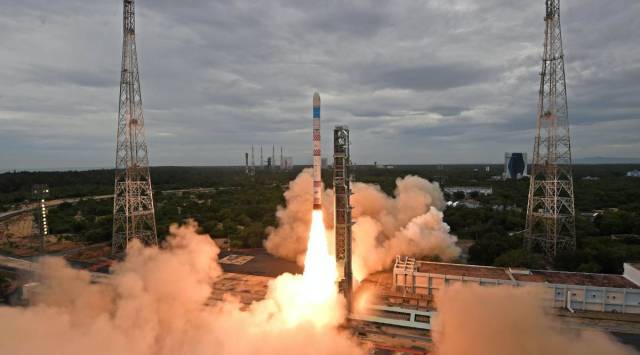A new space Bill — a legal framework for commercial use of space — will be “completely different” from the proposed Bill released in 2017, doing away with provisions for imprisonment, according to Lt Gen AK Bhatt, director general of Indian Space Association (ISpA)
“That (previous Bill) was a little harsh. Imprisonment will be a very major disincentive for the industry, so the government will remove it. They have taken note of it and that will not be a part of it,” Bhatt said on the sidelines of Indian Space Conclave, organised to celebrate the one-year anniversary of the organisation.

Launched by the Prime Minister last year, ISpA is an industry association for private players in space.
The 2017 Bill provides for imprisonment of up to three years and fine of over Rs 1 crore if any activity is undertaken without prior licensing, if false information is furnished, or if it pollutes earth, airspace, outer space or celestial bodies.
Other than a leniency when it comes to criminal charges, the Bill will also create mechanisms for insurance damages. “The cost of insurance (for space activities) is very high. Today, ISRO does not pay for it because it is a government commitment, but when a private player is there, they will need insurance,” he said.
According to Bhatt, it could be tackled in one of two ways: either a corpus fund is created that can pay for the damages, or the government needs to set a cut-off. “They (government) need to come up with a cut-off. Say, till Rs 300 crore the companies will pay insurance premiums; beyond that it becomes a sovereign responsibility,” he said.
The previous Bill also states that rules may be laid out for insurance or financial guarantee by the Centre for space activities by private companies.
Story continues below this ad
Marking the shift towards the private sector, India’s heaviest rocket, GSLV Mk III, will launch 36 satellites OneWeb global communication satellite constellation. This is the first commercial launch by the vehicle, so far having carried two ISRO communication satellites for two of its development flights and the Chandrayaan-2 for its first operational flight.
The launch will take place on October 21 from the second launch pad at the country’s only spaceport at Sriharikota.
While ISpA has grown from seven members to more than 50 members in a year, the number of space sector start-ups in the country has also boomed from just a handful two years ago, before the space sector was opened up, to over a hundred now.
Minister of State for Space Dr Jitendra Singh said that growth of the private space sector shows that India does not lack the potential. “The capacity was not lacking. If that were the case, we would not have seen this at all,” Singh said. “What was lacking was possibilities and resources from the dispensation at the time.”
Story continues below this ad
ISRO chairperson S Somanath said, “We (space sector) have to grow bigger. Downstream applications are less complex, but when you go upstream, it becomes much more complex and very difficult to provide failures. This is where we need to support each other, and this is where the role of space comes in.
“The space sector can solve a lot of problems and important issues of climate-mapping, internet services. These are a few emerging markets which we will see grow.”
He said ISRO will be a partner, and not a competitor, to the new innovations.
“With the rapidly growing space ecosystem, India is all prepared to grow to $13 billion by 2025 at a CAGR of 6%. We believe as India looks forward to the New Space Policy, the private industry’s role is set to create a revolution in the current value chain of the Indian space economy,” ISpA chairperson Jayant Patil said.









